The Pentagon has a request for America’s missile manufacturers: Please make more. A lot more. What could possibly go wrong?
According to the Wall Street Journal, U.S. defense officials urged companies to double production of certain missiles, citing concerns over depleted stockpiles and the possibility of a “major conflict with China.” Because nothing says peace like quadrupling your order of high explosives.
- The Pentagon urges missile makers to double production over fears of depleted stocks and possible conflict with China.
- Leaked reports suggest Russia may be training Chinese paratroopers, signaling a deepening Moscow-Beijing military alliance.
- The US considers sending long-range Tomahawk missiles to Ukraine despite Moscow's warnings against escalation.
- Youth worldwide challenge the status quo with digital tools and protests, contrasting with superpowers' missile stockpiles.
Contracts worth billions have already been signed with Raytheon and other defense giants, while defense stock prices quietly climbed.
The Pentagon wants more American missiles. Image credits: Daniel Ceng/Anadolu via Getty Images
Officially, the request is about preparedness. Unofficially, it looks like the military-industrial complex just hit “subscribe and save.”
Meanwhile, in Washington
At the same time, President Trump’s ally Pete Hegseth is berating military officers, publicly scolding generals for not falling in line with the administration’s “peace through strength” agenda. The subtext? The Pentagon might be building missiles, but loyalty tests are now part of the job description.
Pete Hegseth is now Secretary of War. Image credits: Anna Moneymaker/Getty Images
It’s the kind of family drama you’d expect at a Thanksgiving table, not at the helm of the world’s largest military. Yet here we are, watching domestic politics bleed into military readiness like reality TV with nukes.
While Washington fumes, Vice President JD Vance says the government is “looking at” sending long-range Tomahawk missiles to Ukraine. For those keeping track, Tomahawks are not fireworks; they can strike deep into Russian territory.
Moscow has already warned against this move because apparently, “Please don’t send cruise missiles to our doorstep” still counts as diplomacy. But in 2025, restraint is a rare commodity.
JD Vance suggested the U.S. could send Tomahawk missiles to Ukraine. Image credits: Drew Hallowell/Getty Images
Russia + China = Training Day (with paratroopers)
As if things weren’t tense enough, leaked documents reviewed by British think tank RUSI suggest Russia is helping train a Chinese airborne battalion, potentially preparing for operations related to Taiwan. If true, this marks one of the clearest signs of a growing Moscow-Beijing military axis.
The documents should be taken with caution: they’re leaks, not gospel. But the very possibility of Russia teaching China how to seize airports has sent analysts into overdrive.
Taiwan, meanwhile, continues to brace itself for what increasingly feels like someone else’s war rehearsal.
A military exercise in Taiwan. Image credits: Daniel Ceng/Anadolu via Getty Images
Over in Latin America, the U.S. revoked Colombian President Gustavo Petro’s visa, citing “reckless actions.” Venezuela, too, finds itself back in Washington’s crosshairs under the familiar pretext of the “drug war.”
It’s an old playbook: when in doubt, frame interventions as security missions, or “bringing democracy” to dictatorships. The rhetoric might change, but the pattern remains the same: Pressure governments that resist U.S. influence, especially when global attention is elsewhere.
Gaza’s ‘peace deal’ isn’t exactly peace
And then there’s Gaza. After months of negotiations, Israel secured edits to Trump’s proposed withdrawal plan that will allow it to slow and limit its exit. Critics say this amounts to rebranding the occupation, rather than ending it.
The irony is hard to miss: as Trump calls himself the “president of peace” while boosting missile output, one of the bloodiest conflicts in recent memory is being “resolved” through technicalities that keep the status quo alive.
At the United Nations General Assembly last week, leaders from the Global South voiced concerns about escalating conflicts everywhere: Ukraine, Taiwan, Gaza, and Latin America.
Trump is boosting missile output. Image credits: Alex Wong/Getty Images
It’s not just the wars themselves, but the arms build-up that alarms them. And then there was Benjamin Netanyahu, who addressed an assembly full of creaky chairs, yet most of the countries that walked out have not declared sanctions or stopped arming Israel.
Even Palestinian recognition, a wonderful but empty gesture, cannot stop bombs shredding children to pieces.
Put bluntly: The world’s most powerful countries seem to be acting like teenagers with fireworks, except the fireworks are Tomahawks and hypersonics. And instead of July 4th, the setting is a global system already fraying under climate stress, inequality, and distrust.
The youth don’t need missiles to shake governments
While Washington and Moscow trade long-range threats, young people elsewhere are showing you don’t need missiles to destabilize the status quo—just Wi-Fi and stubbornness.
In Madagascar, Generation Z has taken to the streets demanding basics: Water, electricity, and a government that doesn’t treat corruption as a national sport. Authorities responded with curfews, arrests, and crackdowns, because nothing wins back young people’s trust like sending riot police after them.
A military parade held in Russia this year. Image credits: Sefa Karacan/Anadolu via Getty Images
Meanwhile, in Nepal, students recently chose their political leadership not at the ballot box but over Discord.
Yes, the same app usually reserved for gaming clans and meme sharing is now a platform for actual democratic decision-making. It’s almost hilariously fitting: while superpowers stockpile missiles, Nepalese youth are crowdsourcing governance in voice channels. If nothing else, it’s a reminder that politics can be both dead serious and deeply weird in 2025.
A year of infinite contradictions
So here’s the snapshot: the US is pushing for more missiles while calling itself the peacemaker. Russia is supposedly teaching China how to seize airports, while NATO sharpens its stance against Moscow. Latin America is back on Washington’s intervention list, and Gaza’s “peace” deal looks suspiciously like war with new branding.
If 2025 has taught us anything, it’s that the line between geopolitical analysis and doomscrolling fan fiction is paper-thin. The Pentagon is out here stress-ordering missiles like toilet paper in a pandemic, NATO is flexing like a gym bro on pre-workout, and youth from Gaza to Madagascar to Nepal are refusing to politely wait their turn in history.
Netanyahu spoke at the UN General Assembly, but most delegates boycotted his speech. Image credits: Liao Pan/China News Service/VCG via Getty Images
And then we get the cherry on top: leaked reports claiming Russia is helping China prep for Taiwan. Is it true? Maybe. Is it possibly an overcaffeinated psyop designed to make us all sweat and drive weapons contracts sky-high?
After all, “leaked documents reviewed by a think tank” has about the same credibility these days as “a guy in a pub told me.” The danger isn’t just the missiles; it’s that rumors of missiles can be just as profitable as the real thing.
So here we are: one foot in realpolitik, the other in propaganda theater. If it feels like the perfect storm for escalation, that’s because it is, but it’s also the perfect moment to question who benefits from the panic.
Trump wants to be known as the ‘president of peace.’ Image credits: Daniel Torok/The White House via Getty Images
Spoiler: it’s not the kids on Discord in Kathmandu or the young protesters in Antananarivo. It’s the same old cast of defense contractors, strongmen, and opportunists who thrive when everyone else is too busy bracing for World War III to notice the bill.
If history books are written in turning points, 2025 is stacking up as a chapter where everyone pressed “escalate” and hoped the other side would blink first.
Spoiler alert: That’s not how blinking contests usually end.
Poll Question
Thanks! Check out the results:
1k+views
Share on Facebook


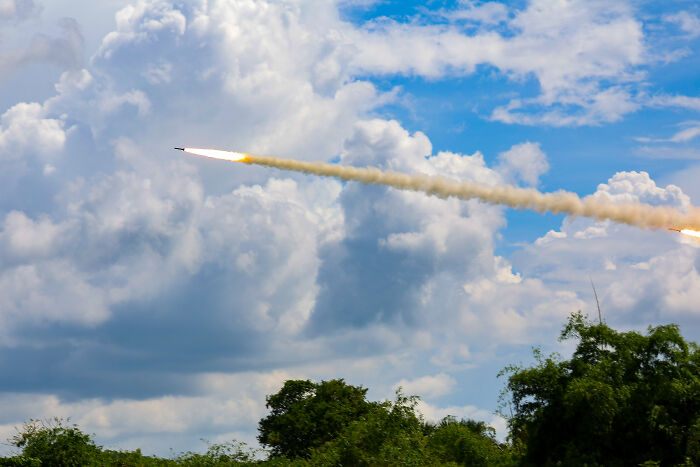

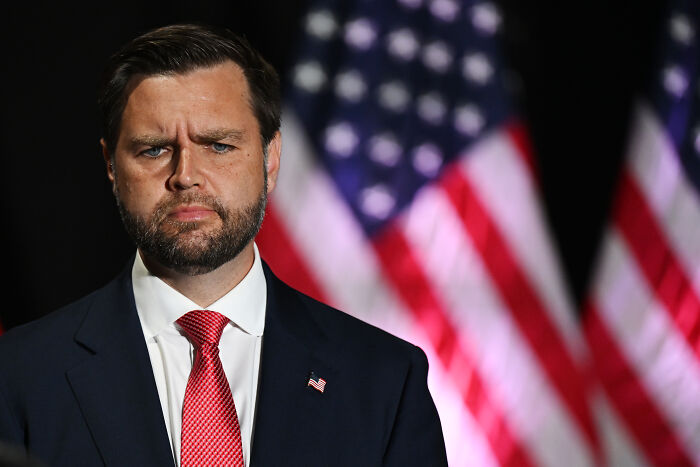
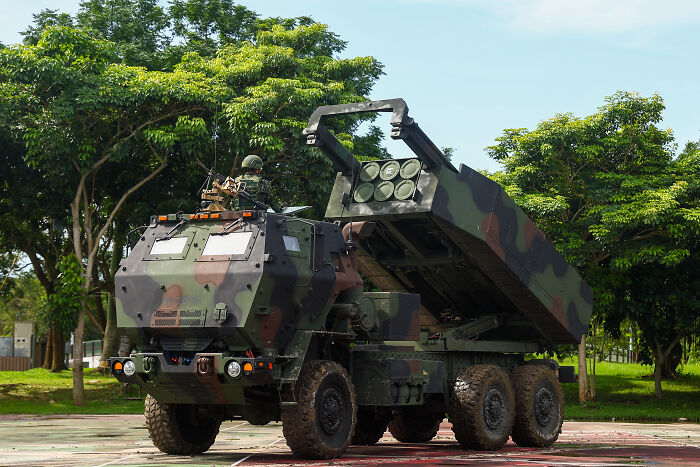

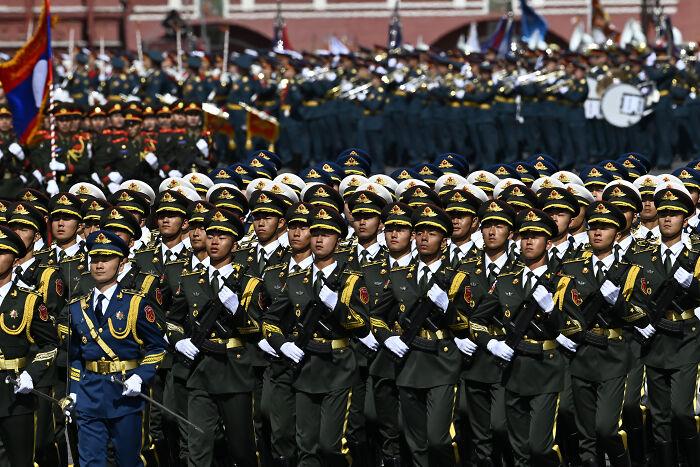
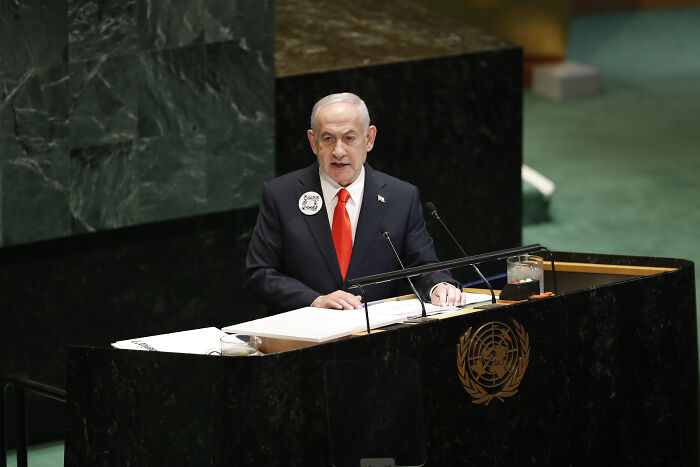




17
0